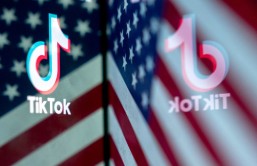Coming off his win in Nevada Tuesday night, Republican front-runner Donald Trump bragged during his victory speech about his performance among Latino voters, saying he was "No. 1 with Hispanics."
"You know what I'm really happy about, because we've been saying it for a long time? Forty-six percent with the Hispanics! Forty-six percent! Number one with Hispanics!," the real estate mogul said, according to CNN.
His statements were made in reference to entrance polls showing that among Hispanic Republicans who participated in Tuesday's Nevada caucuses, 45 percent - the majority - voted for him. In contrast, 27 percent voted for Sen. Marco Rubio (R-Fla.), while 18 percent voted for Ted Cruz (R-Texas).
For Trump, who has accused Mexican immigrants of being "rapists" and "killers," as well as promising to build a wall between Mexico and the United States, all the while saying that Mexico will pay for it, getting a majority of the Latino vote is certainly impressive. Especially when he managed to earn more than Rubio and Cruz, who are both Cuban-American.
However, based on a poll conducted by The Washington Post-Univision News, Trump's favorable standing among Latino voters isn't likely to last and only applies to that one state. The survey found that 80 percent of Hispanic registered voters nationwide viewed Trump unfavorably, and 72 percent had a very unfavorable view - marking the lowest of any candidate.
"The GOP has a Latino electorate problem, and that problem is called Donald Trump," said Fernand Amandi, a principal at Bendixen & Amandi International, a Miami-based polling firm that helped conduct the survey, according to USA Today.
These results are significant because the poll found that, just like they have for decades, Democrats will obtain the majority of the Hispanic vote come November. Should Trump become the Republican nominee, despite the efforts of Democrats and Republicans alike, based on information from Republican strategists, he would need to gain 40 percent of the Hispanic vote - a number last reached by President George W. Bush in 2004.
Trump doesn't come close to that number, while Rubio and Cruz only approach it. In a race against Democrat Bernie Sanders, Rubio would pick up 33 percent of Hispanics while getting 31 percent in a similar race against Democrat Hillary Clinton. Cruz fares even worse, winning 28 against Sanders and 27 against Clinton.
Therein lies part of the dilemma that the Republican party faces as it seeks to regain control of the White House. Rubio and Cruz post decent numbers as far as a national polls concerning Hispanic voters are concerned, but they have yet to decisively beat Trump in any Republican primary, which they will need to do if they want to reach the general election.








